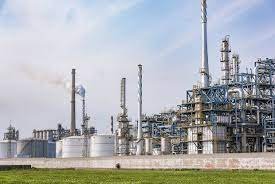Varsity teacher urges FG to privatise refineries, review monetary policy
An Associate Professor of Economics and Public Affairs Analyst, Dr Omolade Adeleke, on Thursday urged the Federal Government to privatise Nigeria’s four refineries.
Adeleke, a senior lecturer at the Department of Economics, Federal University, Oye-Ekiti (FUOYE), gave the advice when he spoke with newsmen in Ado-Ekiti.
He advised President Bola Tinubu to give licences to more individuals interested in building refineries and increase workers’ salaries to cushion the effect of fuel subsidy removal.

Adeleke, also the Acting Director of FUOYE’s Centre for Continuing Education, who reviewed the socio-economic challenges of Nigeria over time, listed solutions to the effects of fuel subsidy removal.
“Fuel subsidy is a term synonymous with reduction in prices of goods and services when certain percentages of the real price have been paid by another entity.
“In economics, it is described as a phenomenon to keep maximum price celling working and Nigeria is subsidising the fuel purchase price with N7 trillion annually.
“Our budget deficit for 2023 is N12 trillion; the implication is that we are using more than half of our annual budget deficit to subsidise fuel purchases.
“I support the removal of fuel subsidy because it is an organised scam against Nigerians,” he said.
The associate professor said that one of the ways to manage fuel subsidy removal was for government to provide palliatives and incentives to cushion the effect on Nigerians.
He noted that the turnaround maintenance of both the Warri and Port Harcourt refineries was 75 per cent completed.
Adeleke said that Port Harcourt refinery would process 210,000 barrels of oil on a daily basis, while Warri refinery would process 135,000 barrels.
He added that Dangote Refinery that was just completed refines 650,000 barrels of crude oil per day and a barrel would produce about 159 litres of petrol.
The don said that the totality of the litres the three refineries would process per day would be 153 million litres.
“Our daily consumption, according to NNPC is approximately 66.8 million litres, so the implication of fixing both the Warri and Port Harcourt refineries is that we will be having excess fuel supply which will reduce price.
Read Also: Taraba APC stakeholders forum dissociates self from consensus…
“Other direct palliatives are from the demand side which is the minimum wage increment and there is also the indirect approach to palliatives which is the provision of infrastructure.
“We generate about 11,000mw of electricity in this country of more than 200 million citizens. South Africa with a population of about 60 million people generates between 30mw and 50,000mw of electricity,’’ he noted.
He added that if government fixed power today, a lot of things would come into place, stating that adequate power supply would be better than distributing small palliatives of foodstuffs.
Speaking on inflation, Adeleke advised the Federal Government to revisit the country’s monetary policy.
He noted that the CBN was addressing inflation issue only from the monetary policy, but not focusing on the structural perspective.
Adeleke urged government to make sure that there were concerted efforts to encourage manufacturers, Small and Medium Scale Businesses to get soft loans.
“Currently, interest rate is 18.5 per cent, but by the time the money gets to the banks, they raise the rate to about 30 per cent.
“In Nigeria, our own inflation is not monetarily motivated, it is a structural one. There is a low rate of production not excess money in circulation.
“It is when there is so much money in circulation that you increase interest rates so that there will be a decrease in circulation,’’ he stressed.
Varsity teacher urges FG to privatise refineries, review monetary policy
